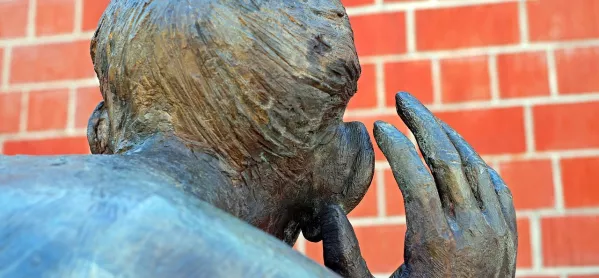- Home
- Leaders need to listen first and speak last
Leaders need to listen first and speak last

Great school leadership can make the unimaginable possible. What makes a great leader is always up for a debate – should a leader be loved? Respected? Feared? Whatever your approach, there’s one thing that should never be compromised on – the ability to listen. Second to this is the discipline to speak with appropriate timing, preferably the patience to speak last. If you think back to the best leaders you have worked with or seen in action, most of them will have been excellent listeners. These leaders speak only to encourage further contributions or when that which had to be said by others had been shared.
The word "listen" is a simple yet powerful one. Good listening is the cornerstone of forming any effective relationship. And yet some of us – both teachers and pupils – struggle to maintain interest when listening. A bad listener (especially a leader) quickly earns a poor reputation so this should be addressed straight away. You can do this by setting yourself a limit of questions to pose to the speaker. Stay focused as you draft questions in your mind and stop at two. The outcomes are amazing, and relationships will be enriched.
When you choose to listen, you give the gift of consideration and receive the following: an opportunity to rethink your ideas or opinions, learn something new or better, be humbled with a unique insight (or simply, be entertained). It’s incredibly arrogant to assume that you cannot be taught something new by others. This approach is an essential part of effective leadership models in successful schools; both distributed leadership and constructivism value the input of all stakeholders.
My students regularly humble me with their unique insight, in circumstances that are often and varied. From how to deal with that stubborn stain on my office carpet, to how to handle grief relating to the death of a child in school, taking the time to listen can lead to solutions. Listening to them also makes me laugh at times, usually with them and not at them. It’s often that wild uninhibited laughter we all get which melts tension away and strengthens relationships. Leaders who listen to students with sincerity enable authentic student voices to be part of school improvement.
Speak last …next?
I think as leaders an important motto to live by is "speak last… next?" – it’s definitely helped me become a more effective leader. It’s all about self-control and listening carefully: to your staff and your pupils. Speaking last enables you to praise contributions and initiate further discussion from others.
Most teachers are aware of the concept of "wait time" when posing questions to students in a class. Perhaps the practice has come about as, naturally, teachers as talkative. Of course, there’s a place for teacher talk, but it needs to be appropriate and measured. If we don’t give our young people the chance to speak, clarify their understanding and share what is on their mind, we cannot address misunderstandings and teach them effectively.
Competition to speak and be heard is a common trait in many poorly run meetings. I’m sure I’m not alone in experiencing an uncomfortable meeting run by an aggressive chairperson who insists on speaking on every single issue, doing so the loudest and shooting down ideas that do not conform to his or hers. This leader allows little time for anyone else to contribute and when they do, interrupts any points they make. In these situations, they are likely to say "let me finish" more than once. Clearly, this is not the model of leadership to aspire to.
Becoming a better listener and less of a speaker can be challenge as a leader, especially when it comes to dealing with your staff. Often, they may wait for you to speak, using this to determine the timing and direction of their own contribution. But by holding your tongue, you may find that one of the following happens: someone else says what you wanted to say, someone has said the opposite or proposed a superior resolution, or another participant has asked for your contribution. By the time your contribution is requested following others, it is often more meaningful and given greater weight.
Ayisat Fashola is a deputy head in an international school
Keep reading for just £1 per month
You've reached your limit of free articles this month. Subscribe for £1 per month for three months and get:
- Unlimited access to all Tes magazine content
- Exclusive subscriber-only stories
- Award-winning email newsletters



